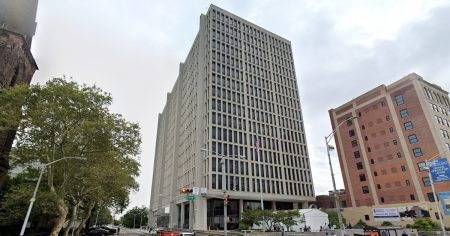The Big Apple has seen a troubling trend of squatters illegally taking residence in private homes and apartments in the five boroughs, making it increasingly difficult for landlords to remove them. Changes in city laws in 2019 now require landlords to go through a special proceeding and file a lawsuit to evict squatters. Real estate attorneys have noted a rise in squatter cases, attributing it to factors such as the migrant crisis, post-pandemic homelessness, and media coverage. While some believe the attention given to squatters in the media is encouraging more incidences.
Squatters, intruders who illegally occupy a property, have become more sophisticated with fake documents and elaborate schemes to claim occupancy. The issue arises from a legal loophole allowing anyone to claim legal occupancy after staying in a property for a certain period despite the landlord’s objections. In the five boroughs, this period is only 30 days, making property owners vulnerable to unwanted occupants. The exact number of squatters in the city is unknown as state court officials do not specifically track such cases.
High-profile squatter cases have garnered attention, adding to the issue’s visibility. Stories of squatters demanding money to vacate properties, leading to lawsuits and even violence, have sparked concern among property owners. Some lawmakers are taking action by introducing bills that give property owners more rights and criminalize squatting, especially as the cost of living, housing, and migrant crises coincide in the city. Post-pandemic backlogs in housing courts have further delayed the resolution of squatter cases, stretching the legal system’s limits.
Attorneys have highlighted the challenges property owners face in removing squatters due to the legal protections extended to occupants and the long delay in court proceedings. The amendment to state law in 2019 gave squatters more rights, putting legal property owners at a disadvantage when trying to reclaim their property. Savvier squatters have utilized various tactics, such as sending mail to themselves or using fake leases, to establish their right to possession, further complicating the eviction process.
Despite squatters being a long-standing issue in the city, recent changes in laws and an increase in cases have heightened concerns among property owners and lawmakers. The crisis comes at a time when a confluence of economic, housing, and demographic factors is straining the city’s resources and legal system. The lack of tracking or monitoring of squatter cases and the court backlog have worsened the situation, with property owners facing extended delays and legal hurdles in removing unwanted occupants from their properties. Addressing this issue will require a multifaceted approach involving legal, legislative, and administrative actions to protect property owners and prevent the abuse of legal loopholes by squatters.















